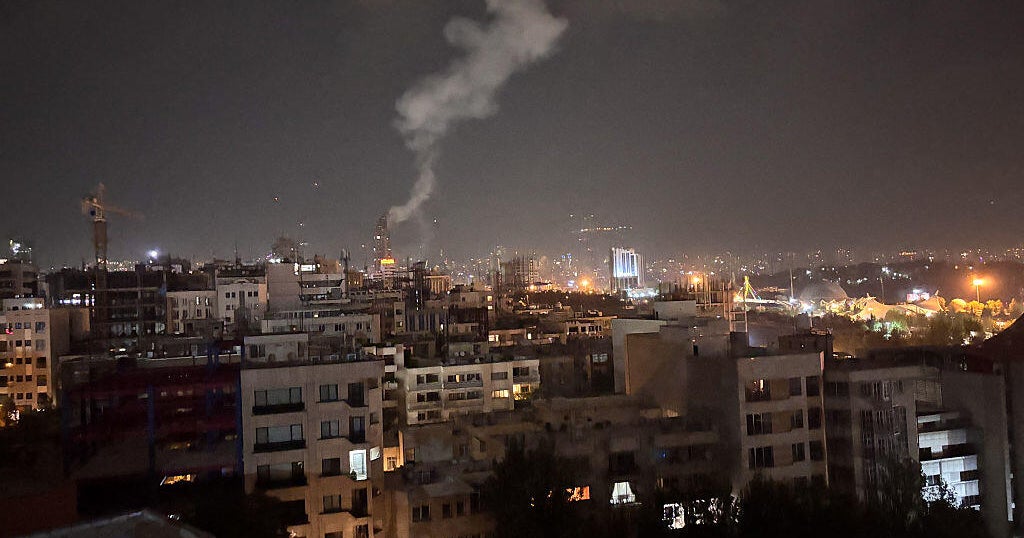On Friday, Israel launched a significant military operation targeting Iranian nuclear facilities and military leadership, heightening tensions in the region. The Israeli Defense Forces reported that over 200 fighter jets were involved in airstrikes across Iran, affecting more than 100 predetermined targets, including key sites in Tehran and the Natanz uranium enrichment facility. Iran, responding to the strikes, deployed drones aimed at Israel, prompting a robust defense from Israeli air forces, marking a critical escalation in ongoing hostilities.
| Article Subheadings |
|---|
| 1) Overview of Military Actions |
| 2) Impact on Iranian Nuclear Facilities |
| 3) Iran’s Response to the Strikes |
| 4) International Reactions and Implications |
| 5) Future Prospects for Peace and Stability |
Overview of Military Actions
The Israeli airstrike operation began on Friday morning, with the Israeli Defense Forces (IDF) confirming that over 200 fighter jets were mobilized to execute the strategic attacks. The primary focus was directed at Iranian nuclear facilities deemed as immediate threats to Israel’s security. The operation was characterized by the precision targeting of more than 100 sites across Iran, including significant locations in the capital region of Tehran and Natanz, which is recognized as a crucial uranium enrichment facility. These airstrikes were referred to by Israeli Prime Minister Benjamin Netanyahu as a “targeted military operation to roll back the Iranian threat to Israel’s very survival.”
Impact on Iranian Nuclear Facilities
The strikes had a profound impact on several critical components of Iran’s nuclear program. The IDF reported that the underground facilities at Natanz sustained damage, affecting areas containing multi-story enrichment halls equipped with centrifuges, as well as essential electrical rooms and infrastructure necessary for operations. While the United Nations’ nuclear watchdog, the International Atomic Energy Agency (IAEA), reported no increase in radiation levels outside Natanz following the operation, the targeted sites were integral to Iran’s continuing efforts to develop nuclear capabilities. Furthermore, another critical enrichment site located in Fordow reportedly remained untouched during this initial wave of attacks.
Iran’s Response to the Strikes
In reaction to Israel’s aggressive tactics, Iran launched over 100 drones towards Israeli territory. Despite this substantial offensive, the majority of the drones were successfully intercepted by Israel’s air defense systems, minimizing potential damage. Iranian President Mahsoud Pezeshkian publicly stated that the nation would not stand idly by and promised a “strong action” in response to what he labeled an act of provocation. The heightened rhetoric from Iranian officials indicated a determination to retaliate, underscoring a rapid escalation in hostilities across the region.
International Reactions and Implications
The international community reacted with concern to the rapid escalation of violence between Israel and Iran. Secretary of State Marco Rubio clarified that the U.S. was not involved in Israel’s military actions, emphasizing a stance of neutrality as the situation developed. This contradicted previous expectations regarding U.S. intervention in negotiations aimed at mitigating tensions in the region. Notably, as the Trump administration was working to negotiate constraints on Iran’s nuclear ambitions, there was uncertainty regarding the continued viability of these diplomatic efforts. As President Trump urged Iran to “make a deal” to avoid further conflict, the situation placed additional strain on ongoing peace negotiations.
Future Prospects for Peace and Stability
The ramifications of this escalation are set to significantly impact regional stability moving forward. With Iran pledging retaliation and Israel indicating a sustained military campaign aimed at curtailing Iranian nuclear capabilities, analysts are concerned about the potential for further violence and instability. The ongoing conflict may complicate future diplomatic efforts not only concerning Iran’s nuclear program but also regarding broader Middle Eastern stability. Observers are wary that without a coordinated international response, the cycle of retaliation may lead to an entrenched conflict, diminishing hopes for a peaceful resolution.
| No. | Key Points |
|---|---|
| 1 | Israel launched a massive military operation targeting Iranian nuclear facilities and military leadership. |
| 2 | Over 200 Israeli fighter jets participated in the airstrikes, targeting more than 100 sites. |
| 3 | Iran vowed to retaliate, launching drones against Israel, most of which were intercepted. |
| 4 | The international community expressed concerns about escalating violence and impeded diplomatic efforts. |
| 5 | The situation poses potential long-term threats to peace and stability in the Middle East. |
Summary
The events of Friday mark a critical turning point in the longstanding conflict between Israel and Iran, underscoring the fragility of security in the region. As military actions escalate and diplomatic dialogues become increasingly strained, the risk of further confrontations looms large. The calls from various leaders for peace will now have to contend with an environment filled with heightened tensions and retaliatory threats, leaving the future of regional stability uncertain.
Frequently Asked Questions
Question: What were the primary targets of the Israeli airstrikes?
The primary targets included Iranian nuclear facilities, military commanders, and critical infrastructure involved in Iran’s uranium enrichment program.
Question: How did Iran respond to the Israeli military actions?
Iran launched over 100 drones at Israel in retaliation, with Israeli air defenses intercepting the majority of them.
Question: What implications do these events have for future peace negotiations?
The escalation in military actions complicates ongoing diplomatic efforts and could lead to entrenched conflict, making peace negotiations increasingly challenging.
